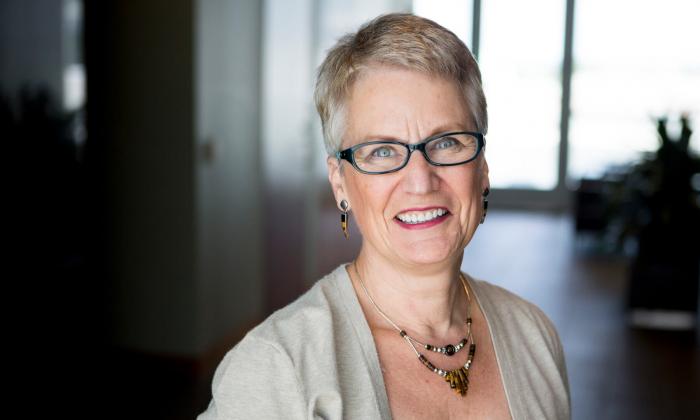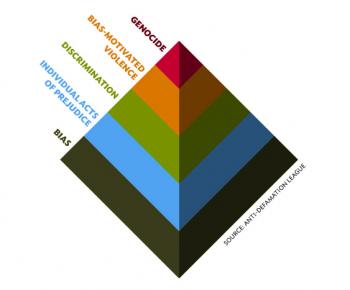I am angry. I am angry about seeing my country succumb to fear on a scale I never thought possible.
I have lived through other fearful times. I remember crouching in “duck-and-cover” drills during the Cold War and worrying, as an 8-year-old, about nuclear annihilation. I came into adulthood during the malaise of the mid-1970s, waiting in long lines to gas up the car, struggling to cope with double-digit inflation, and wondering whether the progress and optimism of the late ’60s had reached the end of the line. I was in New York City on 9/11 and had a single purpose that day: getting out of Manhattan and back to my family, even if I had to walk the 20 miles between my office and my home.
And still, I have never seen the kind of fear that grips the United States today. It has a name: Islamophobia.
Every day brings a new story about Muslim individuals or Islam at large being demonized. Today, I read about district leaders who closed all the schools in Augusta County, Virginia, because a world geography teacher assigned her students to copy a passage in ornate Arabic calligraphy. Unfortunately for the teacher, the passage was the Shahada—the Islamic profession of faith—and the magical thinkers in the community believed it was part of a plot to convert their children.
"The only thing we have to fear is fear itself."
Franklin D. Roosevelt
Parents in other states, spurred on by anti-Muslim organizations, have taken up the banner. Besieging local school boards, these parents point to “pro-Islamic and anti-Judeo-Christian” textbooks that cover the five pillars and the height of Islamic civilization claiming it’s all part of an active plot to indoctrinate public school children.
I began teaching high school courses in world history and geography over 35 years ago. The textbooks I used explained the five pillars, showed Islamic art and design and highlighted the scientific and cultural achievements of what used to be called the Golden Age of Islam.
Here’s the reality: The textbooks haven’t changed—we have.
We are now a nation where Muslim women are fearful of going to supermarkets wearing the hijab, where one candidate for president says a Muslim can’t hold this office, and another calls for closing mosques and banning Muslims from entering the United States.
It’s hard to be a teacher in such an environment. Countering Islamophobia could make you a target, get your school closed or cost you your job. And yet, teaching children to recognize stereotypes, to read and understand current events and to sort through complicated questions is at the heart of what teachers are called to do.
I’ve turned to the Pyramid of Hate, a graphic created by the Anti-Defamation League, to help explain why we must take fear-based anti-Muslim bias so seriously. It illustrates that unchallenged bias—which we’ve come to accept as normal when we’d rather close schools than let kids learn about Islam—leads to more damaging and dangerous acts like bias-motivated violence and genocide.
"I say I am stronger than fear."
Malala Yousafzai
When it comes to Muslim Americans, what level of abuse have we come to accept? The New York Times reported in December that, in the hours after the San Bernardino shooting, the “top Google search in California with the word ‘Muslims’ in it was ‘kill Muslims.’” The Center for the Study of Hate and Extremism at California State University reports that “anti-Muslim hate crimes tripled in the wake of the Paris and San Bernardino attacks.”
In other words, we’ve almost reached the top of the pyramid. Doesn’t that make you angry too?
—Maureen Costello



0 COMMENTS